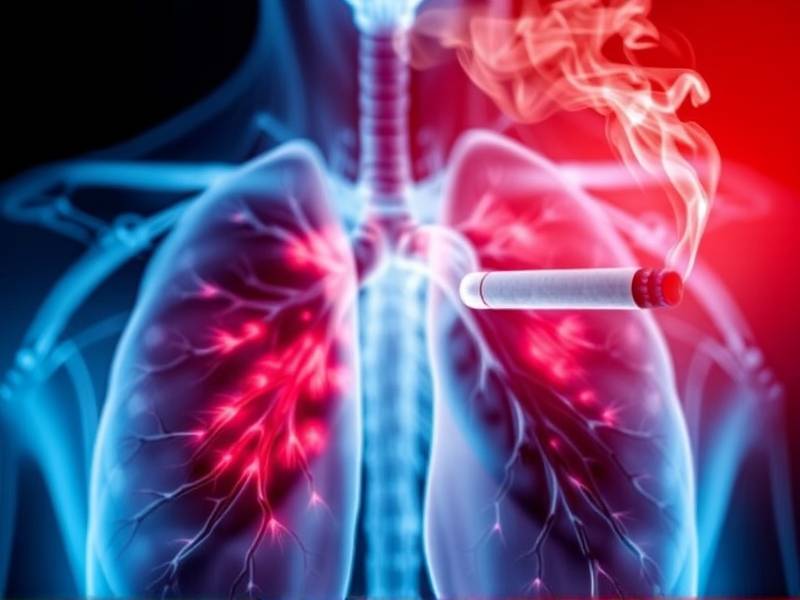What Happens to Your Lungs When You Quit Smoking?
The Remarkable Transformation of Your Lungs After Quitting Smoking
Introduction: Quitting smoking is a significant decision that can lead to numerous health benefits, especially for your lungs. Many people are unaware of the incredible transformation that occurs within their lungs after they quit smoking. This article will explore the changes that take place and why it's crucial to kick the habit.
I. The Immediate Impact of Quitting Smoking on Your Lungs

A. Decreased carbon monoxide levels When you quit smoking, your body starts to repair itself almost immediately. One of the first changes you'll notice is a decrease in carbon monoxide levels in your blood. Carbon monoxide binds to hemoglobin more readily than oxygen, leading to reduced oxygen delivery to your tissues and organs.
B. Improved lung function Within days of quitting, your lung function begins to improve as the cilia (tiny hair-like structures) in your lungs start to regenerate and clear out mucus and debris more efficiently.
II. Long-term Benefits of Quitting Smoking on Your Lungs
A. Reduced risk of chronic obstructive pulmonary disease (COPD) COPD is a progressive lung disease that can be prevented by quitting smoking. Over time, quitting can significantly reduce your risk of developing COPD.
B. Decreased risk of lung cancer Quitting smoking reduces your risk of developing lung cancer, one of the deadliest forms of cancer. Studies have shown that within 10 years of quitting, the risk decreases by half compared to continuing smokers.
C. Improved respiratory health Long-term quitters often experience fewer respiratory infections, such as bronchitis and pneumonia, due to improved lung function and reduced inflammation.
III. The Healing Process After Quitting Smoking
A. Regeneration of alveoli Alveoli are tiny air sacs in your lungs where oxygen and carbon dioxide exchange takes place. Quitting smoking allows these alveoli to regenerate and expand, improving overall lung capacity.
B. Reduced inflammation Smoking causes inflammation in the lungs, which can lead to various respiratory issues. By quitting, you reduce this inflammation, allowing for better breathing and reduced symptoms like coughing and wheezing.
IV. Embracing a Healthier Lifestyle

A. Regular exercise Incorporating regular exercise into your routine can further enhance the healing process in your lungs by improving circulation and reducing stress.
B. Healthy diet Eating a balanced diet rich in fruits, vegetables, whole grains, lean proteins, and healthy fats can provide essential nutrients for lung health.
Conclusion: The journey towards better health begins with quitting smoking. As you give up this harmful habit, your lungs undergo remarkable transformations that improve their function and reduce risks associated with smoking-related diseases like COPD and lung cancer. By embracing a healthier lifestyle along with quitting smoking, you'll experience even greater improvements in lung health over time.
